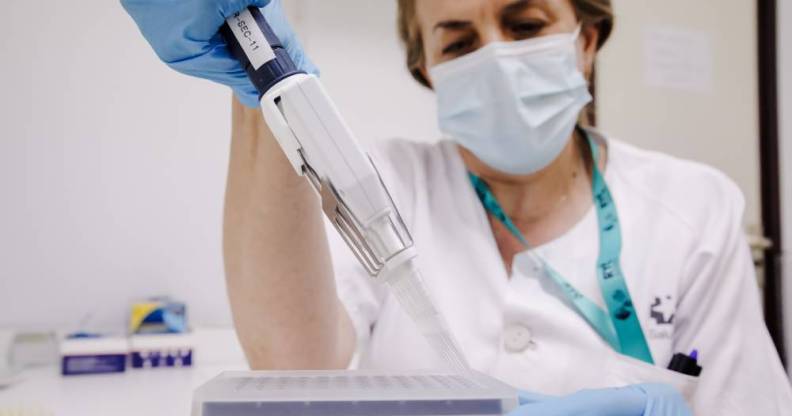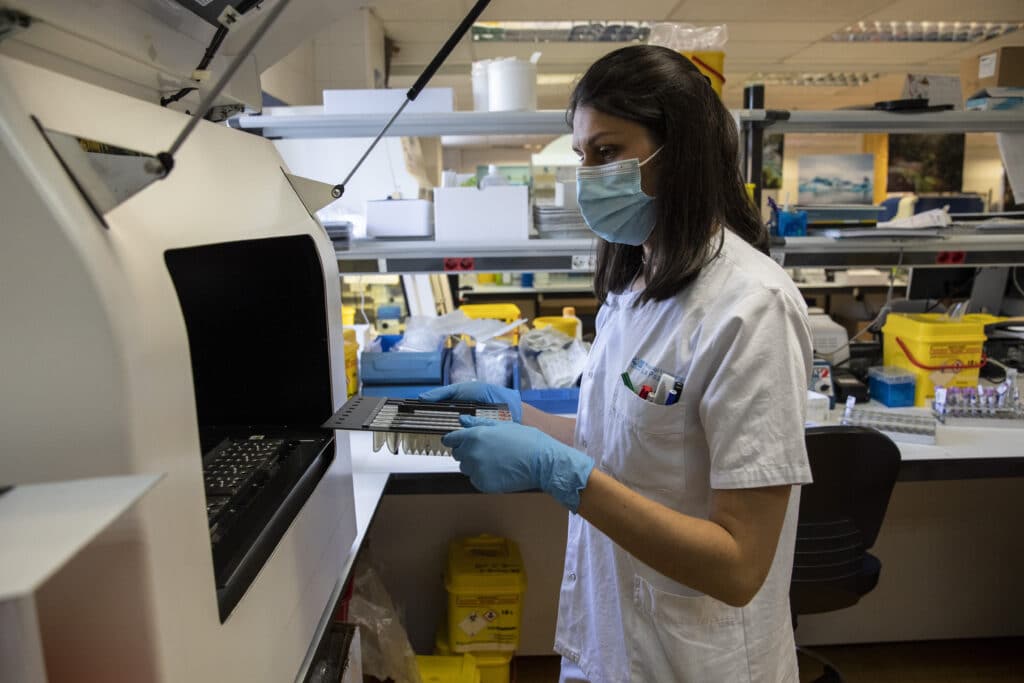Monkeypox declared global health emergency by World Health Organization following surge in cases

The World Health Organization has defined the current global monkeypox outbreak a “public health emergency of international concern”. (Carlos Lujan/Europa Press via Getty)
The World Health Organization (WHO) declared the growing monkeypox outbreak a global health emergency – the global health agency’s highest level of alert.
WHO director-general Dr Tedros Adhanom Ghebreyesus said during a briefing Saturday (23 July) the global monkeypox outbreak now “represents a public health emergency of international concern” (PHEIC).
The designation is defined by the WHO’s international health regulations as an “extraordinary event which is determined to constitute a public health risk to other States through the international spread of disease and to potentially require a coordinated international response”.
The United Nation (UN) health agency said the definition implies a situation that is “serious, sudden, unusual or unexpected”; “carries implications for public health beyond the affected state’s national border”; and “may require immediate international action”.
Tedros made the declaration without a consensus from experts on WHO’s emergency committee, who were split over whether the designation was warranted. He acted as a “tiebreaker” in the decision-making process.
According to the Associated Press, it was the first time a UN health agency chief independently made such a call without an expert recommendation.
“We have an outbreak that has spread around the world rapidly through new modes of transmission, about which we understand too little,” Tedros said. “I know this has not been an easy or straightforward process and that there are divergent views.”
He said the risk of monkeypox is moderate globally except in Europe, where the risk is assessed as high.

Monkeypox cases continue to soar around the world. (Pablo Blazquez Dominguez/Getty Images)
There have been 16,015 monkeypox cases globally with 4,132 cases reported in the past week, according to WHO data. Thus far, there have been five deaths linked to the virus.
The European region reported the highest number of cases in the recent outbreak with 11,865 in total. WHO reported the regions of the Americas had the second highest number of cases at 3,772.
Monkeypox has several visible symptoms as it creates a red rash with flat marks. The marks soon rise and fill with puss, which later fall off.
The NHS says patients can also experience fever, body aches, chills and swollen glands. Symptoms can take between 5 and 21 days to show and bouts of monkeypox can last for weeks.
Tedros said the current outbreak is “concentrated among men who have sex with men, especially those with multiple sexual partners”. However, experts have emphasised that anyone can get monkeypox as it is spread by close, physical or intimate contact.
The UN warned some reporting on monkeypox regarding African people and the LGBTQ+ community “reinforce homophobic and racist stereotypes and exacerbate stigma”. Other health experts explained the discourse around the virus could easily become “homophobic” and said there’s a “huge risk of stigma” towards LGBTQ+ people.
Tedros warned during the WHO briefing that “stigma and discrimination can be as dangerous as any virus”.
The WHO released a comprehensive set of recommendations for countries that haven’t yet reported a monkeypox case or have not reported a case for more than 21 days; those with recently imported cases; countries that have seen transmission between animals and humans; and countries with manufacturing capacity for diagnostics, vaccines and therapeutics.
This is the seventh event declared a PHEIC by the WHO since 2007, according to the National Library of Medicine.
The other instances included the 2009 H1N1 influenza pandemic; the Ebola outbreak in West Africa from 2013 to 2015; the Ebola outbreak in Democratic Republic of Congo between 2018 and 2020; Zika outbreak in 2016; the continuing spread of poliovirus which started in 2014; and the ongoing COVID-19 pandemic.

